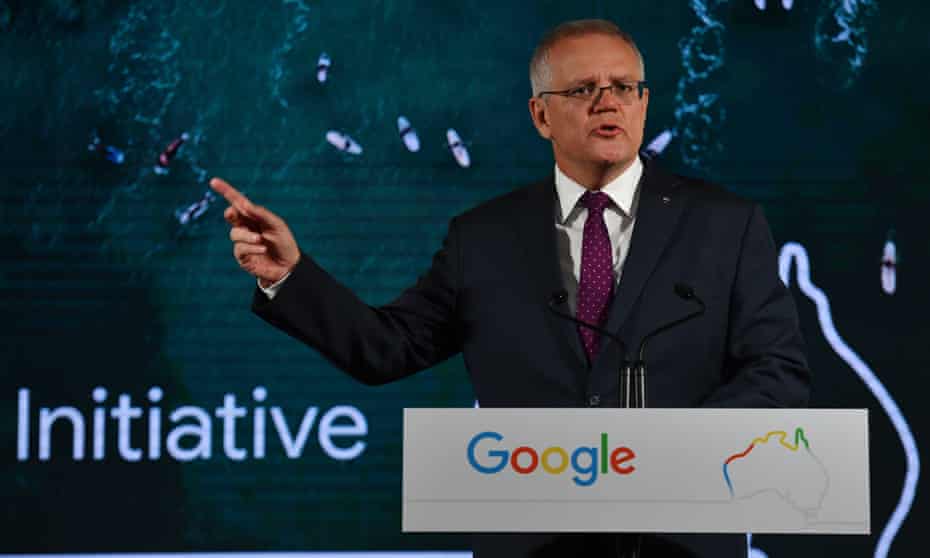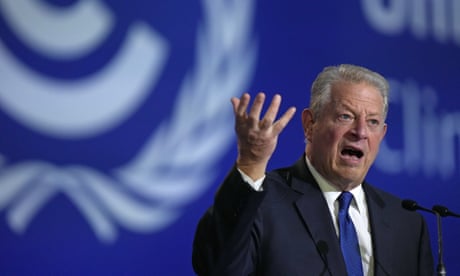Extract from The Guardian
The Coalition has a solid track record in imposing ‘don’t do’ regulation on some people when it suits them

“Can do capitalism” is the latest Morrison-ism to be tested this election campaign, with the prime minister placing responsibility for the government’s climate change ambition with the private sector, in another attempt to minimise his government’s need for action.
“We believe climate change will ultimately be solved by ‘can do’ capitalism; not ‘don’t do’ governments seeking to control people’s lives and tell them what to do, with interventionist regulation and taxes that just force up your cost of living and force businesses to close,” Morrison said last week.
“‘Can do capitalism’, not ‘don’t do governments’. I think that’s a good motto for us to follow not just in this area, but right across the spectrum of economic policy in this country. We’ve got a bit used to governments telling us what to do over the last couple of years. I think we have to break that habit.”

But what does “can-do capitalism” mean? Will “no sweat neoliberalism” be next?
The meaning of “can do” really depends on what part of the world you’re in. In America, it tends to mean you have a confident and optimistic approach to challenges. In the UK, it’s someone who you can count on to take on a task, no matter the challenges. In Queensland, it brings to mind one-term LNP premier Campbell Newman. And in Morrison’s world, it is the latest slogan to describe how to do nothing while appearing to offer solutions.
In all likelihood, can-do capitalism will have a short life as a campaign soundbite, as it is merely an extension of “technology not taxes” – the other three-word slogan the government dreamed up to sell its climate policy.
Neither are true. The government has committed at least $20bn to encouraging the market to step in and solve Australia’s emissions reduction issue, money which will come from taxes. The government’s own plan to support industry involves legislating funds through the Clean Energy Finance Corporation, which Tony Abbott attempted to abolish in 2015.
But even relying on the free market to step in and solve a challenge for a government involves an interventionist approach – something the Coalition, the party of “small government” and champion of free enterprise, regularly engages in.
A report released by the Australia Institute earlier this year found that federal and state subsidies for coal, oil and gas projects came to more than $10bn in spending and tax breaks for fossil fuel industries. And that is before the “gas led recovery” intervention the government is planning, to expand the use of gas in the Australian electricity market. Under the government’s own “modelling”, the Australian fossil fuel gas industry is expected to be 13% higher than 2020 by 2050.
In fact, there are a lot of “don’t dos” in the government’s “can do” gas plan, including setting up new gas supply targets for states and territories with “use it or lose it” requirements on gas licences, to get more projects going more quickly.
The Coalition has a solid track record in imposing “don’t do” regulation on some people when it suits them, such as the Indue cashless welfare program, which limits where welfare recipients can shop, and what they can purchase with their social security funds.
It also has many “don’t dos” for the national broadcaster, with its latest – a Senate inquiry into the ABC’s complaint process – receiving a strong rebuke from ABC chair Ita Buttrose.
John Roskam, an executive director of the Institute of Public Affairs, has accused the Coalition government of drifting towards a European-style Social Democratic Party, in terms of “the level of government regulation of the labour market the Liberals accept”.
Now, after failing to provide certainty for investors in the renewables market, while continuing to subsidise the fossil fuel industry, Morrison has palmed off the responsibility for Australia meeting its climate responsibilities to the private sector.
“The world’s companies are going to solve this problem because they’re the ones who make electric cars,” he told Nine newspapers. “They’re the ones who make hydrogen and use it and create energy. They’re the ones who manufacture things like steel and aluminium, and plastics.”
“Governments don’t do any of those things. That doesn’t mean government doesn’t have a role, of course it does, but it’s not the answer. It’s helping support the answer. And ultimately, consumer choice will drive it.”
The same man who rubbished electric vehicles in 2019 – because they “won’t tow your trailer” – now wants Australians to embrace those technologies, because “can do capitalism” will save the world.
Amy Remeikis is a political reporter for Guardian Australia
No comments:
Post a Comment